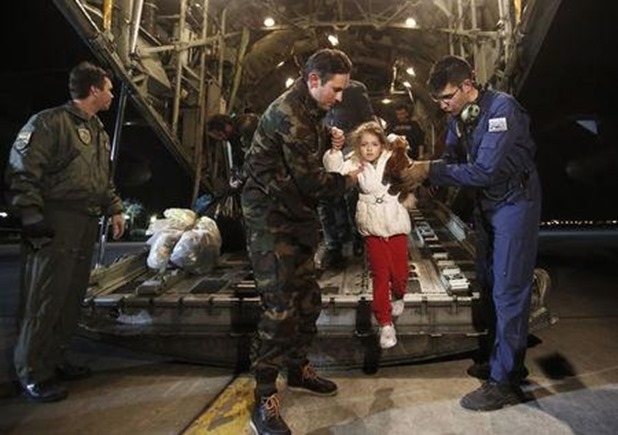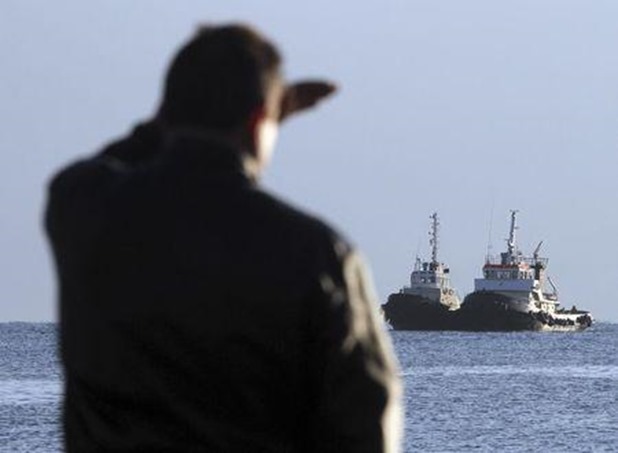Yahoo
January 2, 2014

Two Albanian seamen were killed on Tuesday during the salvage operation of a car ferry that caught fire off Greece’s Adriatic Coast two days ago on a voyage to Italy.
The disaster killed at least 11 people and dozens more are feared missing, although more than 400 people were successfully airlifted from the stricken vessel over Sunday and Monday.
The men were killed when a cable connecting their tugboat to the smoldering hulk of the Norman Atlantic snapped and hit them, an Albanian port authority official and Italy’s navy said.
As salvage operations continued, there was confusion over the numbers on the ship, with dozens of names on the passenger manifest unaccounted for and no clarity over whether they had drowned or had not actually been aboard in the first place.
It was also unclear how many people, including illegal immigrants, may have boarded without being recorded. Italy and Greece have opened separate investigations into what caused the fire, which broke out on a lower deck.
One more body was recovered on Tuesday, bringing the death toll to 11, the Italian navy said, while 427 people had been rescued, bringing the total to well short of the 478 names recorded on the ship’s manifest.

Italian and Greek helicopters and rescue vessels battled rough seas and high winds for 36 hours, winching scores of people off the deck as the blaze raged below.
Ute Kilger, a German survivor who arrived in Brindisi earlier on Tuesday, told Reuters: “I was lucky, I was saved after nearly 24 hours. This is a long time to fill with hope and with fear that you will die.”
